Anna Aslanyan
A decade after Londoners, we have another wonderful work of oral history from Craig Taylor. New Yorkers: A City and its People in Our Time (John Murray, £16.99) is a collection of monologues that makes you feel as if you are there, listening to these people. A nurse, an activist, a nanny, a car thief, a personal injury lawyer, a lice consultant, a philanthropic foundation officer, a meditation teacher and dozens of others tell their stories of a place that ‘meant more of everything’ to them and to their interlocutor. Even before finishing the book, I began imagining what Taylor’s next destination might be. I also kept wondering how he infallibly manages to draw so much from his urban encounters. ‘More life,’ to quote his introduction again, ‘and more of life.’
A.N. Wilson
The French Enlightenment began with bookish, brilliant ideas that led to a revolutionary bloodbath. The English Enlightenment began with clever technocrats converting scientific discoveries into machinery, transport systems and industry — a modern world, with all its horrors and all its joys, where businessmen could become as rich as dukes. At the centre of the story was that hyperactive wooden-legged genius, aesthete, entrepreneur and scientist Josiah Wedgwood, who produced some of the most beautiful objects ever made in the British Isles. Who better to write his life than the former MP for Stoke-on-Trent Central and current director of the Victoria and Albert Museum, which houses many of these wonderful ceramics? Tristram Hunt, one of our finest historians, has done a magnificent job in The Radical Potter (Allen Lane, £25). Every chapter made me cheer and halloo.
Mark Mason
‘He will pry the lid off a coffin to try another treatment.’ That’s how one American doctor is described in Katie Engelhart’s brilliant The Inevitable: Dispatches on the Right to Die (Atlantic, £14.99) about assisted dying and how it is practised (or not) around the world. The same arrogant attitude is shown by the medical establishment here, with its lofty assumption that the only important thing in life is avoiding death. Science means we can now keep people alive as zombies for years on end, so that is what doctors want to do: never mind the quality, look at the length. No matter that the patients themselves want to die — beg for it, in many cases; doctor knows best, so shut up and do as you’re told. Engelhart’s interviewees have a different story to tell.
Frances Wilson
Given that you can put anything you like in a novel, said D.H. Lawrence, why do we go on putting in the same thing? Why, he asked, is the vol-au-vent always chicken? Alison MacLeod has put everything she has found in the cupboard into Tenderness (Bloomsbury, £18.99), her big, bold book about Lady Chatterley’s Lover. On the one hand she has produced a meticulously researched account of the birth and afterlife of Lawrence’s last novel, and on the other she has reconstructed the imagination that went into Lawrence’s big, bold book. This is a vol-au-vent in which Lawrence, Jacqueline Kennedy, J. Edgar Hoover and Lionel Trilling all provide the filling, and it will change forever the way we read Lady Chatterley, in the same way that Jean Rhys’s Wide Sargasso Sea changed Jane Eyre.
Roger Lewis
John Sutherland’s Monica Jones, Philip Larkin and Me(Weidenfeld & Nicolson, £20) made me hate Larkin for the way he ground Monica down, really ground her down and drove her to madness — though I suspect she was always going to be susceptible to that state. When Sutherland quotes me as saying she was the biggest criminal in literary history, I meant because she ordered the destruction of Larkin’s diaries, not for any other reason. (I wish Sutherland had made that clear.) I am rather envious of the way she drew a full salary as an academic all her life, never did a jot of scholarly research or published a word, and had all those long, paid holidays and a pension.
But for me this has been the year of Jonathan Meades, who is guaranteed to raise the spirits. Pedro and Ricky Come Again (Unbound, £30) is a masterpiece of baroque prose, with articles on everything from architecture to food and politics to pop culture. Fiercely independent-minded, Meades is the only non-fiction writer in the world worth a damn.
Clare Mulley
Helping judge the Historical Writers Association non-fiction prize this year, I have been spoilt for choice. Our shortlist starts, alphabetically, with Alan Allport’s revisionist history of the early second world war, Britain at Bay (Profile, £25). Linda Colley’s The Gun, the Ship and the Pen (Profile, £25) reassesses the enduring connection between might and right in the creation of nations, citizens and constitutions. In The Ravine (Apollo, £20), Wendy Lower takes a forensic look at the Holocaust in Ukraine. Les Payne and Tamara Payne have produced a compelling biography of Malcolm X in The Dead Are Arising(Viking, £30). In A Stranger in the Shogun’s City (Vintage, £9.99), Amy Stanley takes readers on an immersive and revelatory journey through 19th-century Japan. And, finally, Małgorzata Szejnert’s Ellis Island (Scribe, £20) is a deeply evocative social history in a fabulous translation.
Hilary Spurling
Most of the books I read in the last ten months were catch-ups from previous years, but the one I enjoyed most of this year’s crop was Frances Quinn’s The Smallest Man (Simon & Schuster, £8.99). It is the surreal but absurdly plausible story of a young boy sold for 11 shillings by his father and sent up to the London of Charles I as a court dwarf for the new French queen. Nat Davy was ten years old, Queen Henrietta Maria not much older, both lonely, bewildered and far from home. Van Dyck painted him by her side in red velvet. They formed an unlikely alliance, if anything strengthened in the chaotic years of violence, destruction and death when civil war split the country. A captivating story, part fact, part fiction — always a tricky balancing act, but Quinn pulls it off with pretty much perfect poise.
Jenny Colgan
Small Pleasures by Claire Chambers (Weidenfeld & Nicolson, £7.99) was one of those word-of-mouth hits this year and I bought it almost by default because everyone else was, only to find it a most beautifully crafted, perfectly embedded miniature. I loved it. If you think they don’t write books like they used to, well, here you go, some people do.
I also loved Sorrow and Bliss by Meg Mason (Weidenfeld & Nicolson, £12.99). A novel about a marriage ravaged by mental illness doesn’t sound like a barrel of laughs, but somehow this is; every line rings true, both in its joy and horrible pain. It’s a very human book. Luster by Raven Leilani (Picador, £7.99) is also an extraordinary take on a mental breakdown.
There’s nothing about the chaotic end of the Trump presidency I wouldn’t read. The best was undoubtedly Michael Wolff’s Landslide (Bridge Street Press, £12.99). The author’s access throughout has been extraordinary. And even though it is a little early to read about the pandemic, Gavin Francis’s compassionate, beautifully written Intensive Care: A GP, a Community and a Pandemic (Wellcome Collection, £9.99) will only grow in importance and interest as the years go by.
The two most beautiful books I got my hands on this year were Holbein: The King’s Painter by Franny Moyle (Apollo, £25), a lavish, ravishing thing; and The Piano: A History in 100 Pieces by Susan Tomes (Yale, £14), about the shaping of this maddening, glorious, unconquerable instrument.
Mark Amory
I am almost certain that my book of the year is The Magician by Colm Tóibín (Viking, £18.99) but I have not read it yet. His The Master, about Henry James, showed what the future of biography could be. The book I was most surprised and delighted by was Your Duck is My Duck by Deborah Eisenberg (Europa Editions, £12.99), an author of whom I had never heard. She is a New Yorker, who has been writing fiercely intelligent, slightly mysterious stories about many sorts of people for many years. Do Not Disturb (Fourth Estate, £20) by Michela Wrong is a brave and important book which shows how victims can sometimes be villains, this time in Rwanda.
Daniel Hahn
Queer, edited by Frank Wynne (Head of Zeus, £25), is a landmark collection of LGBTQ writing from ancient times to yesterday, featuring powerful voices in many literary forms, from Homer and Sappho to Andrew McMillan and Niviaq Korneliussen. Many of the writers included were new to me, not least because the book manages to avoid the lazy, Anglocentric default that usually bedevils collections of this type. The resulting volume is more surprising, more various and richer for it.
And a novel. I’ve just finished Sandro Veronesi’s The Hummingbird (Weidenfeld & Nicolson, £14.99), and I know that many friends will be getting it as a Christmas present. For all its griefs, this story of one man’s life carries a kind of optimism that few books can pull off without lapsing into mawkishness; but this is such an original and assured piece of novel-making, you feel the author could get away with almost anything. It’s beautifully written (and translated, by Elena Pala) and structurally complex, filled with terrible loss but also, ultimately, so much love. What a joy.
Michela Wrong
In a year still dominated by the pandemic, The Four Horsemen and the Hope of a New Age (Riverrun, £20) provided a cheerful antidote. The medical historian Emily Mayhew’s intellectually bracing book argues that human ingenuity and scientific hard grind will give mankind the tools required to take on the horsemen of the apocalypse. I hope she’s right.
During the drafting of my latest book, I worked my way through a lot of dry reports on Africa’s Great Lakes, so Scholastique Mukasonga’s lyrical Our Lady of the Nile (Daunt Books, £9.99) was light relief. Set in a girls’ school in Rwanda, it perfectly captures how youngsters first imbibe and then regurgitate their parents’ ethnic grievances: it’s hard to beat a classroom of adolescent girls for sheer cruelty.
I gobbled up Silverview (Viking, £20), John le Carré’s posthumous novel. I once acted as a guide on a research trip the author took to the Democratic Republic of Congo. But Africa wasn’t a continent where le Carré felt creatively at ease. Here he is on more familiar territory — what was once known as Mitteleuropa, with its shape-shifting double agents, scarred idealists on the prowl for lost causes.
I was embarrassed not to have read anything by the Tanzanian author Abdulrazak Gurnah, this year’s surprise Nobel Prize winner for Literature, so I’ve been belatedly savouring Paradise(Bloomsbury, £9.99), a gently meandering coming-of-age tale set in pre-first world war East Africa. And I’ve just bought — but haven’t yet begun — Chronicles from the Land of the Happiest People on Earth (Bloomsbury, £20), Wole Soyinka’s first novel for 48 years. The title was inspired by an opinion poll which, to general astonishment, once revealed Nigeria to be the world’s most optimistic nation.
Sara Wheeler
The first volume of Deborah Levy’s autobiographical trilogy, Things I Don’t Want to Know, revealed much I hadn’t seen clearly about what it is to be a middle-aged (all right, old) woman writer. So I fell on the final book, Real Estate (Hamish Hamilton, £10.99), and was not disappointed. I hope Levy extends the series. In the travel line, Colin Thubron, of course, with his epic The Amur River (Chatto & Windus, £20); and in biography I admired Carole Angier’s Speak, Silence: In Search of W.G. Sebald (Bloomsbury, £30), even though it almost collapses under its own weight.
Allan Mallinson
T.G. Otte’s Statesman of Europe: A Life of Sir Edward Grey (Allen Lane, £35) is magnificent — its depth of analysis formidable and its humanity moving. I’ve always liked Grey but never exactly admired him. Otte increased my affection and almost made me forget Grey’s passive role in committing the BEF to the battle of the frontiers in August 1914, and all that followed from that monumental mistake.
Strick: Tank Hero of Arras by Tim Strickland (Casemate, £30) is a story of military redemption, from forced pre-war resignation as a subaltern to a DSO in command of an armoured regiment in North Africa and Italy via an MM in the ranks en route to Dunkirk. Strickland takes a remarkably detached view of his father, Eugene Vincent Michael Strickland, which makes his insights so valuable.
Finally, Peace, War and Whitehall by Field Marshal Lord Guthrie (Osprey, £25). Recently, an officer failed SAS selection on the grounds that he ‘lacked the sophistication to brief cabinet ministers’. No chance with Guthrie who, at 18, showed the Queen around Harrow and had tea with Churchill in the headmaster’s office. His memoir is a deceptively brisk read, by turns funny, revealing and instructive. Many senior officers will be disappointed they’re not mentioned, and some dismayed that they are. Spoiler re prime ministers: Guthrie rather admires Blair, but loathes Brown.
Daniel Swift
I loved Eric Vuillard’s The War of the Poor (Picador, £9.99), a short, sharp and delirious tale of a radical 16th-century theologian who rages against worldly inequality and ends up where you might expect. Historical fiction is too bland a term for what Vuillard does. His books are lively present-tense imagistic essays, at least in the beautiful translations by Mark Polizzotti. My happiest reading discovery of the year, however, was William Maxwell. I was given two of his novels for Christmas and immediately tracked down all the others I could find. Start with The Chateau (Vintage, £9.99), and go on from there.
Rod Liddle
Two fine books from the end of last year sustained me through that grim winter lockdown. First, Scoff: A History of Food and Class in England by Pen Vogler (Atlantic, £20). I hadn’t known we were eating pasta 500 years before we found fish and chips, nor had I quite understood the crucial importance of the potato. A brilliant book. Then, from Owen Jones, This Land: The Struggle for the Left (Allen Lane, £20) the best political book I have read for a long while, all the better for Jones’s unashamed participant observation. Thank the living Christ Jones and Corbyn failed in their endeavours, of course. But there is the agreeable whiff of Hunter S. Thompson and his despairing, hopeless love for George McGovern in Jones’s fine writing.
In Jasper Fforde’s lovely little satire The Constant Rabbit (Hodder & Stoughton, £20), Britain is either plagued or enriched by a million human-sized anthropomorphised rabbits. Wonderfully imaginative and very funny, even if its premise was wide of the mark. And Roger Hermiston’s Two Minutes to Midnight(Biteback, £20) is a dark remembrance of 1953, when nuclear annihilation was only the press of a button away. I’d still rather live in 1953 than now, mind.
Julie Burchill
I was knocked out by Trans: When Ideology Meets Reality by Helen Joyce (Oneworld, £16.99). Biology vs magical thinking has become such a violent debate that most people involved (myself included) can’t set verbal foot in it without effing and jeffing till the air is blue. But Joyce is always cool, calm and in complete possession of her extensive collection of facts — something which makes the cry-bullies very cross indeed. Hence the rumours that certain bookshop staff are hiding copies, lest the Violet Elizabeth Botts of woke scream until they’re sick.
Sally Rooney’s Beautiful World, Where Are You (Faber, £16.99) made me want to scream. The writing is so plain that in parts it reads like a children’s starter book — Janet and John Get Naked and Say Stuff About the Pointlessness of Existence.
Stephen Bayley
As the Turner Prize brings art into disrepute, it is good to be reminded what made us interested in modern painting in the first place. Philip Hook’s Art of the Extreme (Profile, £30) concerns the astonishing decade before the first world war, perhaps the last moment when visual artists had great skill and were the unacknowledged legislators who helped us all to see and feel anew.
Far from being arid, point-scoring academic art history, Hook’s book is consummately well-informed and readable, replete with shameless gossip and memorable anecdote. It also helps us understand that all those competing ‘isms’ were, in fact, in common cause and comprised just one bigger ISM. (The ISM-ismis a book someone will write one day.) The illustrations are well chosen and interestingly eclectic. This book is a mesmerising pleasure.
I really wanted to enjoy Hugo Vickers’s Malice in Wonderland (Hodder & Stoughton, £25) even if for the Cocteau-inspired title alone, but was disappointed. It is simply not acid and indiscreet enough. In any case, I am rather tiring of Tennants, Beatons and Coopers. Aren’t there more interesting mid-century poseurs to write about? Yes, there are. Muswell Press has done us all a big favour by reissuing Charmian Clift’s Peel Me a Lotusand Mermaid Singing (£8.99 each). These are exquisitely observed accounts of beatnik life on Kalymnos and Hydra in the 1950s. Blurring any distinction between memoir and fiction, the emotional range is extraordinary — from early ecstasy to later disenchantment and pathos. The books are so moving I would like to have known Clift, but she killed herself in Sydney in 1969.
Christopher Howse
In Whatever Happened to Tradition? (Bloomsbury Continuum, £20) the Telegraphcolumnist Tim Stanley suggests in his engaging way that fidelity to the past determines future happiness — for our civilisation, not just our souls. His book is welcome at a time of surprises. But can the past be repossessed? The dear old Victorians tried (with mixed results) to inhabit the Middle Ages by making their architecture medieval. Contrariwise, the wicked Himmler, wanting to break a treaty, asked: ‘What compels us to keep our promises?’ That may, it seems to me, be a correlative of the theme in The Brothers Karamazov: ‘If God does not exist, then everything is permitted.’ Yet, it’s not that God lives in the past, but that with the right development, the past has a promising future.
Andrew Motion
Two biographies prove, among other things, the versatility of the form by tackling two writers who were contemporary with one another but almost opposite in temperament and technique. Julia Copus’s life of the poet Charlotte Mew, This Rare Spirit (Faber, £25, is quietly sturdy in its treatment of a quietly resolute existence, and in the process reaps a rich reward of pathos and understanding. Frances Wilson’s account of D.H. Lawrence, Burning Man (Bloomsbury, £25), is as fiery as its title, and a match for its subject’s own incandescence and intensity: a brilliant evocation and a profound study.
Richard Ingrams
Dr Johnson said he hated a fellow ‘whom pride or cowardice or laziness drives into a corner and who does nothing when he is there but sit and growl. Let him come out as
I do and bark.’ In Stop Bloody Bossing Me About(Constable, £16.99), Quentin Letts writes in praise of Fenton the black Labrador who achieved worldwide fame when he was filmed chasing deer in Richmond Park, pursued by his panicking owner calling him to heel in vain. In the same Johnsonian spirit, Quentin (or should it be Quenton?) charges and scatters a herd of sacred cows complacently grazing in a shady copse. Anyone with half a heart will cheer him on, if only for the Wodehousean quips he throws out along the way — Greta Thunberg ‘a moody little madam’; Prince Charles ‘one of nature’s Eyores’; David Cameron ‘what a shiny-chinned fibber he was’; Welsh first minister Mark Drakeford ‘a loss to the undertaking business’. More than anything today we need our Quenton to uphold what he calls ‘the old national virtue of bloody-mindedness’.
Andrew Lycett
Andrew Lownie has a remarkable ability to fashion a compelling narrative from raw archive text and personal reminiscence. His Traitor King (Blink, £25), about the Duke and Duchess of Windsor and their questionable cohorts, is every bit as absorbing as his earlier history of the Mountbattens. Frances Wilson has carved a position as one of our most stimulating literary critics. Burning Man (Bloomsbury, £25), her fizzing biographical study of D.H. Lawrence, is her best book yet. Among many memoirs, I was particularly taken by The Paper Lantern by the poet Will Burns (Weidenfeld & Nicolson, £14.99), a subtle Sebaldish meditation on the strangeness of the early months of lockdown in rural post-Brexit Britain, its local horrors offset by ruminative walks in the fondly evoked Chilterns — a mini-masterpiece of period and place.
Ruth Scurr
Lea Ypi’s Free: Coming of Age at the End of History (Allen Lane, £20) is the first book since Elena Ferrante’s My Brilliant Friend that I have pressed on family, friends and colleagues, insisting they read it. Ypi vividly and lyrically evokes her childhood in communist Albania, beginning with the brilliant first sentence: ‘I never asked myself about the meaning of freedom until the day I hugged Stalin.’ On that day in December 1990, Ypi was a schoolgirl and the Stalin she hugged was a newly decapitated statue whose head had disappeared into a crowd of protesters demanding ‘Freedom! Democracy!’ Ypi shows a world turned upside down, deftly combining the perspectives of the innocent child she once was and the professor of political theory she is today. The result is a truly riveting memoir and a profound meditation on what it means to be free.
Peter Parker
The American novelist Peter Cameron is not nearly as well known in this country as he ought to be, and What Happens at Night (Europa, £12.99) is as original and rewarding as anything he has written. An unnamed couple whose marriage is foundering travel to a snowbound European country in order to adopt a baby. While attempting to negotiate with the local orphanage they become marooned in a once grand but now dingy hotel, and this beautifully written and wonderfully droll novel brilliantly captures the frustrations and unease of being in a foreign environment where it is impossible to understand what is going on.
I was convinced at first that Roderic Fenwick Owen’s gamey, rollicking and hugely entertaining memoir Oh, What a Lovely Century (Sphere, £20) was a hoax, but it is apparently genuine. Owen’s experiences as an up-for-anything international adventurer will seem familiar to readers of Simon Raven, and I can think of no better recommendation.
Marcus Berkmann
As I may have mentioned before, I mainly read non-fiction for work and fiction exclusively for fun. The outstanding novels of my reading year are pretty well known: Ann Patchett’s The Dutch House (Bloomsbury, £8.99) was the strangest and probably the most satisfying novel yet of a singular career, while Bernardine Evaristo’s Girl, Woman, Other (Penguin, £8.99) is an out-and-out masterpiece, stunningly well plotted as well as unusually kind to its vast cast of characters. It’s the first book I have read since Anna Burns’s Milkmanwhen my immediate thought was that people will still be reading this with pleasure in 100 years’ time. I have also been enjoying Kate Saunders’s Laetitia Rodd novels, the third of which, The Mystery of the Sorrowful Maiden(Bloomsbury, £16.99), came out this summer. Mrs Rodd, a widow solving crimes in the 1850s, is never less than highly entertainingly, and this, I think, is her best adventure so far.
Got something to add? Join the discussion and comment below.
Get 10 issues for just $10
Subscribe to The Spectator Australia today for the next 10 magazine issues, plus full online access, for just $10.
More Books of the Year next week.
You might disagree with half of it, but you’ll enjoy reading all of it. Try your first month for free, then just $2 a week for the remainder of your first year.

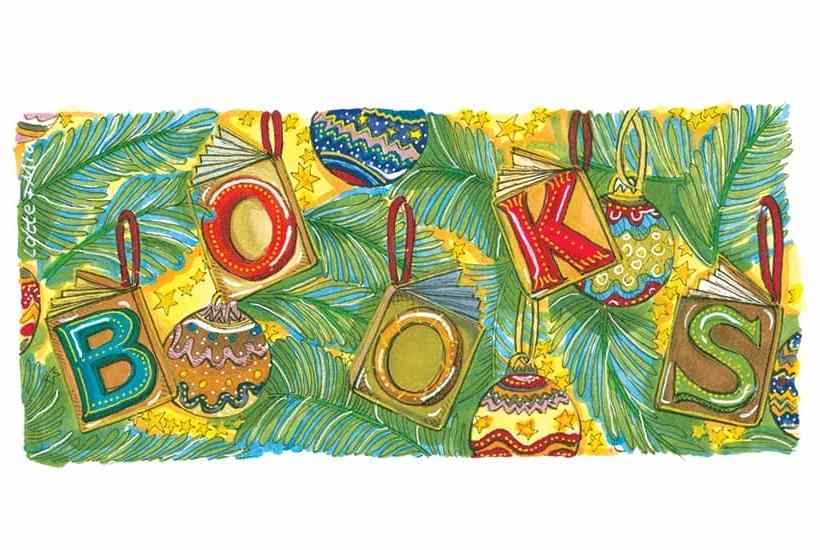
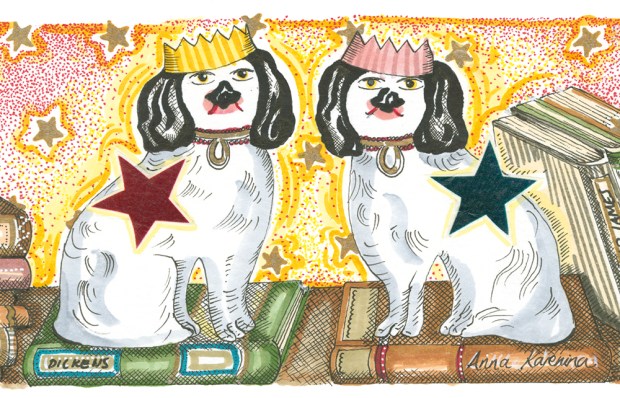
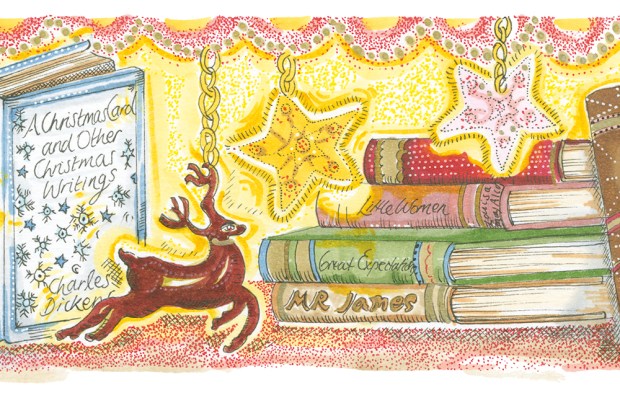
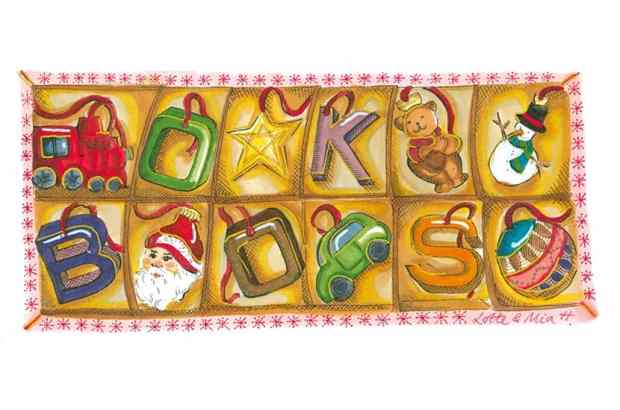
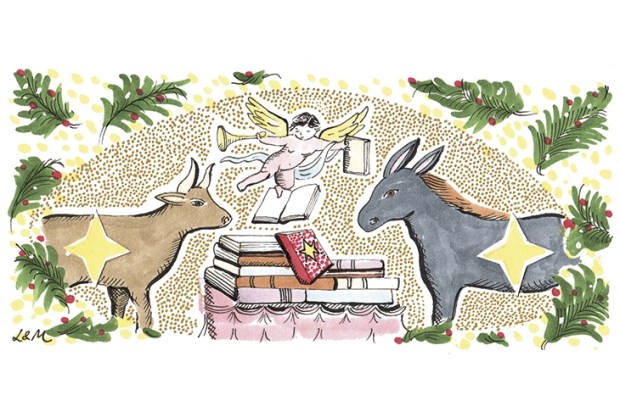
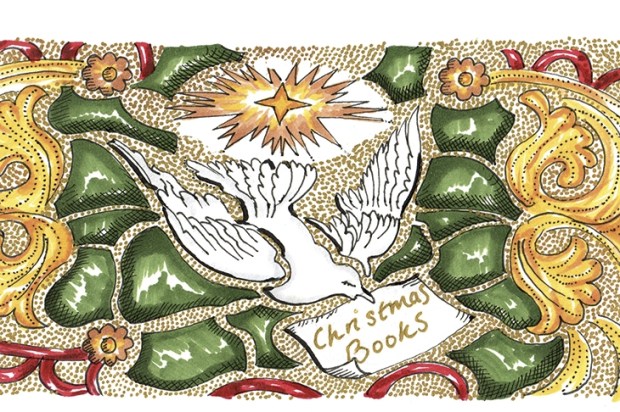
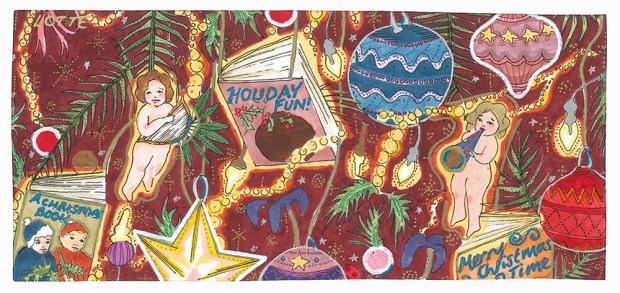






Comments
Don't miss out
Join the conversation with other Spectator Australia readers. Subscribe to leave a comment.
SUBSCRIBEAlready a subscriber? Log in